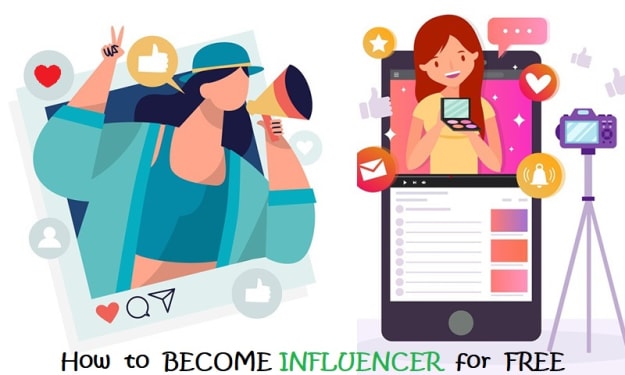Education vs Experience: Unveiling the True Value
What’s more valuable? Education or experience?

Introduction
In the realm of personal and professional growth, a recurring question arises: "What's more valuable, education or experience?" This age-old debate has sparked discussions and divided opinions for generations. Some argue that a solid educational foundation is crucial for success, while others believe that practical experience outweighs formal education. This article aims to delve into the nuances of this topic, shedding light on the true value of education and experience in today's dynamic world.
Argument: Whether solid educational foundation is crucial for success OR practical experience is better than formal education.
Those who advocate for a solid educational foundation argue that formal education provides individuals with essential knowledge and skills that serve as a strong base for their professional pursuits. They believe that a structured education system equips individuals with critical thinking abilities, problem-solving skills, and a broad understanding of various subjects. The curriculum is designed to expose students to diverse perspectives, theories, and concepts, which can help them develop a well-rounded understanding of their chosen field.
Furthermore, proponents of education emphasize the role of educational institutions in fostering personal growth and character development. They argue that educational environments encourage intellectual curiosity, promote discipline, and cultivate important qualities such as perseverance and resilience. Education provides individuals with opportunities to engage in research, collaborate with peers, and access expert guidance, which can contribute to their overall development.
On the other hand, those who believe that practical experience outweighs formal education argue that real-world exposure provides individuals with invaluable insights and skills that cannot be acquired solely through textbooks or lectures. They assert that hands-on experience allows individuals to apply theoretical knowledge in practical scenarios, leading to a deeper understanding of their field. Through experiential learning, individuals can refine their problem-solving skills, develop critical decision-making abilities, and gain confidence in their professional capabilities.
Moreover, proponents of experience highlight the importance of industry-specific expertise. They argue that practical experience allows individuals to navigate the intricacies of a particular field, understand its nuances, and stay up to date with industry trends and advancements. Practical experience often involves facing real-world challenges, making mistakes, and learning from them, which can foster resilience, adaptability, and creativity.
In summary, the debate between the value of education and experience revolves around the belief that a solid educational foundation provides individuals with essential knowledge, critical thinking skills, and personal growth opportunities. Conversely, practical experience offers the application of skills, industry-specific expertise, and a deep understanding of real-world dynamics. While both perspectives hold merit, striking a balance between education and experience is often considered the optimal approach for personal and professional success.
1. The Significance of Education
Education has long been regarded as the cornerstone of personal and professional development. This section explores the benefits of education, including acquiring knowledge, critical thinking skills, and the ability to adapt to evolving landscapes. It discusses the advantages of formal education in terms of career prospects, professional networks, and the credibility it lends to individuals. Additionally, it examines the role of education in nurturing personal growth, broadening perspectives, and fostering a well-rounded individual.
2. The Power of Practical Experience
While education is undoubtedly important, practical experience holds its own unique value. This section delves into the advantages of hands-on experience, highlighting how it allows individuals to apply theoretical knowledge in real-world scenarios. It discusses the development of specific skills, problem-solving abilities, and the opportunity to learn from failures. Furthermore, it emphasizes the importance of experience in gaining industry-specific expertise, building professional networks, and developing a track record of success.
3. Balancing Education and Experience
Rather than viewing education and experience as mutually exclusive, this section explores the benefits of striking a balance between the two. It discusses how combining a solid educational foundation with practical experience creates a powerful synergy. It examines the concept of lifelong learning, where education and experience are seen as continuous processes that complement each other. Moreover, it explores how individuals can leverage education to enhance their experience and vice versa, fostering personal and professional growth.
4. The Context of Different Industries
The value of education and experience can vary across different industries and professions. This section analyzes specific sectors, such as healthcare, technology, business, and creative fields, to highlight how the significance of education and experience may differ. It examines the evolving landscape of these industries and how educational requirements and practical experience are valued differently. By understanding these industry-specific dynamics, individuals can make informed decisions about their educational pursuits and career paths.
5. The Changing Landscape: Emerging Trends
In an ever-evolving world, this section explores how the value of education and experience is being redefined by emerging trends. It delves into the rise of alternative educational paths, such as online learning, vocational training, and self-directed learning. Additionally, it discusses the growing importance of soft skills, lifelong learning, and adaptability in the face of rapid technological advancements. By staying abreast of these trends, individuals can navigate the shifting landscape and make informed choices regarding their education and experience.
Opinion:
In my opinion, the debate between education and experience is complex and multifaceted. Rather than choosing one over the other, it is crucial to recognize their complementary nature. Education provides a foundation of knowledge, critical thinking, and personal growth, while experience offers the practical application of skills and industry-specific expertise. Striking a balance between the two is essential for success in today's dynamic world. By embracing lifelong learning, being open to new experiences, and adapting to changing trends, individuals can unlock their full potential and thrive in their personal and professional endeavors.
About the Creator
Usman Ghani
I'm here to share the wonders of the natural world with you. Join me on a journey of discovery as we explore the intricacies of Life. Let's unravel the mysteries and cultivate a greater appreciation for the marvels of life on Earth.






Comments
There are no comments for this story
Be the first to respond and start the conversation.